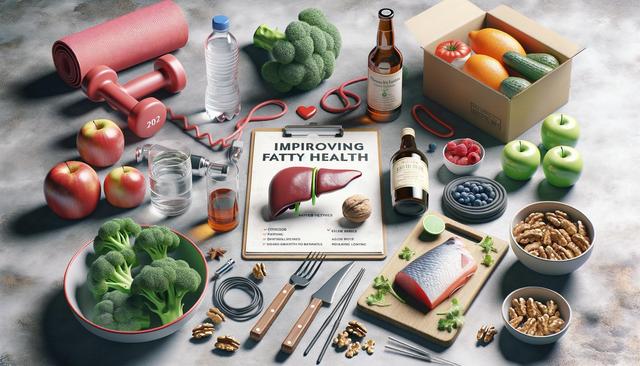Why Diet Matters for Breast Health
Nutrition is a powerful tool in maintaining overall health, and that includes breast health. While no single food can prevent disease, research suggests a balanced diet rich in specific nutrients may support breast tissue and hormonal balance. For example, antioxidants, fiber, and healthy fats are all known to play beneficial roles. Understanding how certain foods interact with the body can help you make more informed dietary choices that align with your health goals.
Breast tissue is sensitive to hormonal changes, and diet can influence hormone levels in the body. Foods with anti-inflammatory properties, as well as those rich in phytoestrogens, may help support a healthy hormonal environment. Instead of focusing solely on what to avoid, it can be more productive to emphasize what to include in your daily meals to help support long-term health.
Unexpected Foods That May Support Breast Health
When thinking about foods that contribute to breast health, leafy greens and berries might come to mind, but there are several lesser-known options worth exploring. These foods are not only nutritious but also easy to incorporate into everyday meals:
- Seaweed: Rich in iodine and antioxidants, seaweed may help regulate estrogen levels and support thyroid function, which is closely tied to breast health.
- Flaxseeds: A good source of lignans, which are plant compounds that may influence estrogen metabolism and support hormonal balance.
- Pumpkin seeds: Packed with zinc and phytoestrogens, these seeds may provide nutritional support for breast tissue.
- Mushrooms (especially shiitake and maitake): Contain compounds that may interfere with the production of aromatase, an enzyme involved in estrogen synthesis.
Integrating these items into your regular diet can be a simple yet meaningful step toward nutritional support for breast health. They also offer a range of other benefits like immune system support and improved digestion.
The Role of Fiber and Digestion
Fiber plays a pivotal role in helping the body eliminate excess estrogen through the digestive tract. A high-fiber diet supports regular bowel movements, which is essential for hormone regulation. When estrogen stays in the body for too long, it may be reabsorbed into the bloodstream, potentially disrupting the hormonal balance.
Some high-fiber foods to consider include:
- Lentils and beans
- Whole grains like oats and barley
- Apples and pears (with the skin)
- Cruciferous vegetables such as broccoli and Brussels sprouts
Incorporating a mix of soluble and insoluble fiber can help maintain a healthy gut, which in turn supports better nutrient absorption and hormonal detoxification. Drinking plenty of water alongside fiber-rich foods is important to help move waste efficiently through the digestive system.
Healthy Fats and Their Protective Properties
Not all fats are created equal. While saturated and trans fats may contribute to inflammation and other health issues, healthy fats can be beneficial, especially for breast tissue. Omega-3 fatty acids, in particular, have been studied for their anti-inflammatory effects and potential to support cellular health.
Good sources of healthy fats include:
- Fatty fish such as salmon and sardines
- Chia and hemp seeds
- Avocados
- Olive oil
These fats contribute to cell membrane integrity and help the body absorb fat-soluble vitamins such as A, D, E, and K, which are vital for overall well-being. Including moderate amounts of these fats in your meals can be a smart strategy for supporting breast health without overloading on calories.
Herbs, Spices, and Natural Compounds
Besides whole foods, certain herbs and spices also offer compounds that may support breast health. These natural flavor enhancers have been used traditionally for their potential health benefits and are now being explored in modern research for their bioactive properties.
Consider adding these to your diet:
- Turmeric: Contains curcumin, a compound with notable anti-inflammatory and antioxidant properties.
- Garlic: Rich in sulfur compounds that may support the immune system and help modulate hormone levels.
- Parsley: A source of apigenin, an antioxidant that may support cellular health.
- Green tea: Contains catechins, which are polyphenols that may help protect cells from damage.
These additions not only enhance the flavor of your meals but also provide a range of nutrients and compounds that can contribute to a balanced and supportive diet. As with all herbs and spices, moderation is key, and they should be part of an overall varied and nutritious eating pattern.
Conclusion: Building a Supportive Diet for Breast Health
Supporting breast health through diet is about more than just avoiding certain foods—it’s about intentionally choosing whole, nutrient-dense ingredients that nourish the body in multiple ways. While no single food offers a guaranteed benefit, a diverse and balanced diet that includes fiber, healthy fats, antioxidants, and plant-based compounds can contribute to long-term wellness.
By including lesser-known foods like seaweed, flaxseeds, and mushrooms, and embracing herbs and spices with functional properties, you can take a mindful and proactive approach to your diet. Whether you’re looking to support general health or taking specific steps based on personal or family history, small changes in the kitchen can make a meaningful difference over time.


